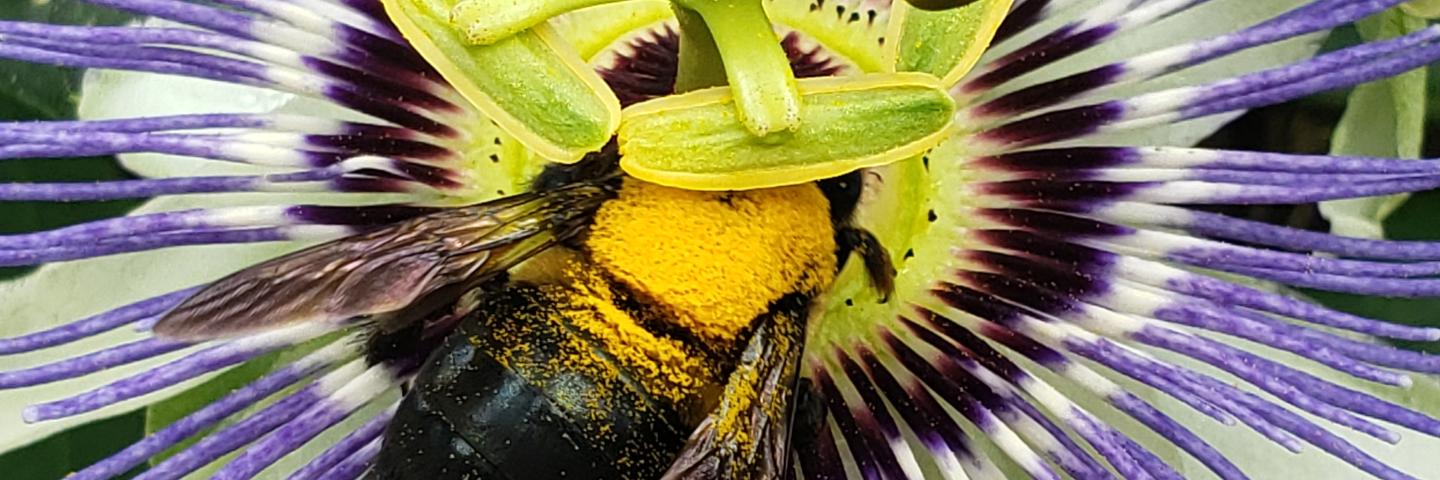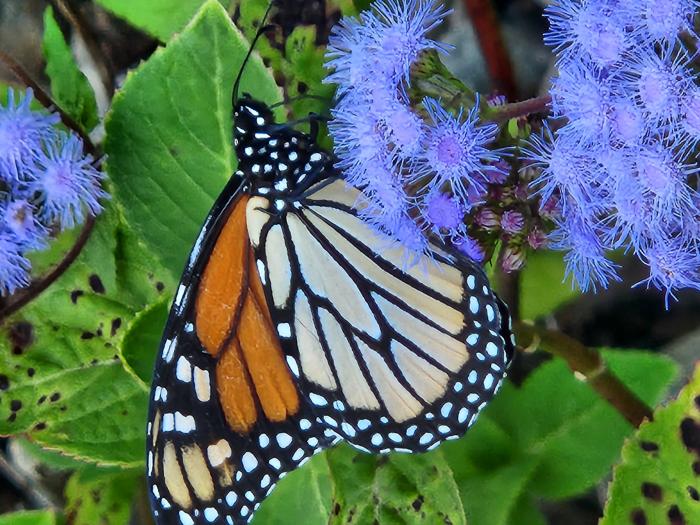
Pollinators are essential to our environment. The ecological service they provide is necessary for the reproduction of over 85% of the world’s flowering plants, including more than two-thirds of the world’s crop species.
Pollinators are animals (primarily insect, but sometimes birds or mammals) that fertilize plants, resulting in the formation of seeds and the fruit surrounding seeds. Humans and other animals rely on pollinators to produce nuts and fruits that are essential components of a healthy diet.

Three-fourths of the worlds flowering plants depend on pollinators to reproduce. Most fruit, vegetable, seed crops and other plants that provide fiber, medicines and fuel are pollinated by animals. Some scientists estimate that one out of every three bites of food we eat exists because of animal pollinators like bees, butterflies and moths, birds and bats, and beetles and other insects.
NRCS provides technical and financial assistance for farmers and private forest owners to improve pollinator habitat on their property. The Environmental Quality incentives Program has targeted assistance for honey bee and other pollinator habitat.
Other organizations with resources to learn about and help pollinators include:
- Clemson Extension Pollinator Garden
- Save the Monarch Butterfly - U.S. Fish & Wildlife Service
- Bee Better Certified
- Save Our Monarchs Foundation
- Monarch Joint Venture
- Xerces Society - Pollinator Plants List
- Pollinator Partnership
- South Carolina Wildlife Federation
- SC Department of Health and Environmental Control Plant List
- City of Charleston Pollinator Plants of the Southeast
- Audubon South Carolina Plants For Birds
- Gardenia: Great Pollinator Plants for South Carolina
Other Resources
- Bee and Pollinator Books by Heather Holm (free plant lists, fact sheets, and posters for educational use)
- Xerces Society
- USDA Pollinators Information


